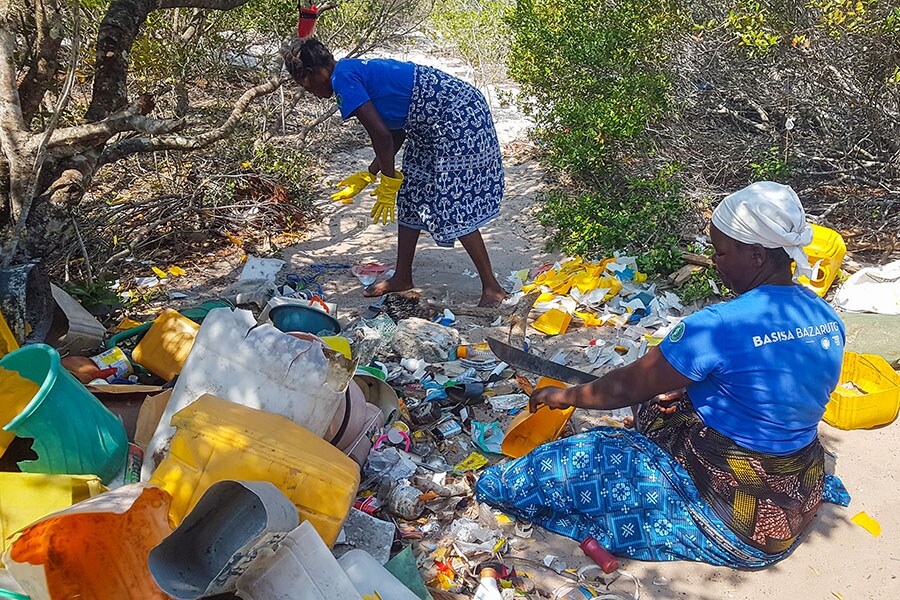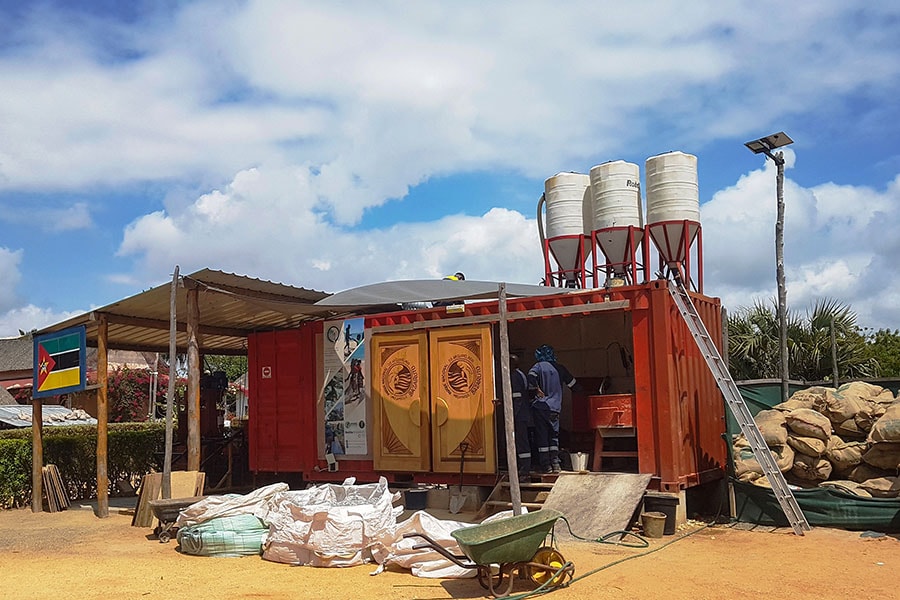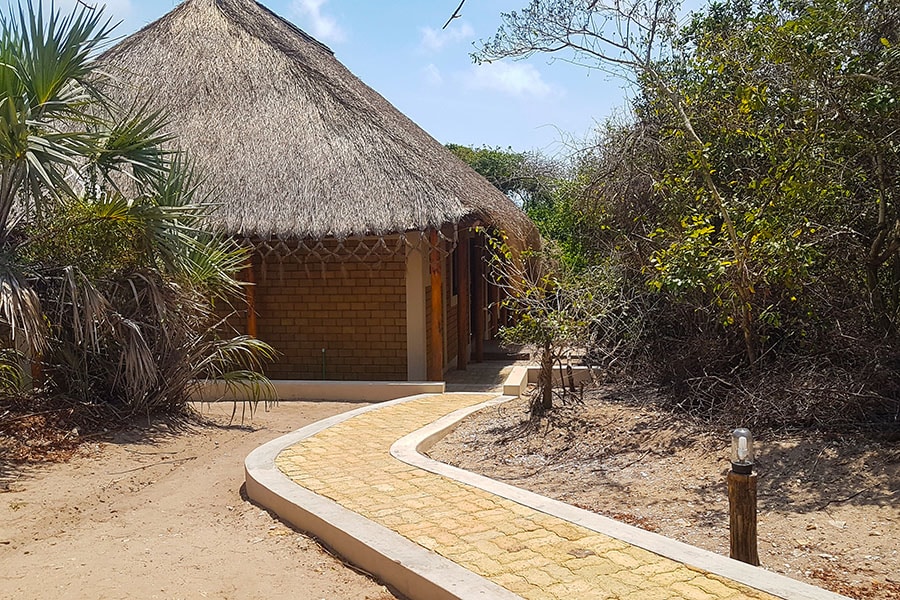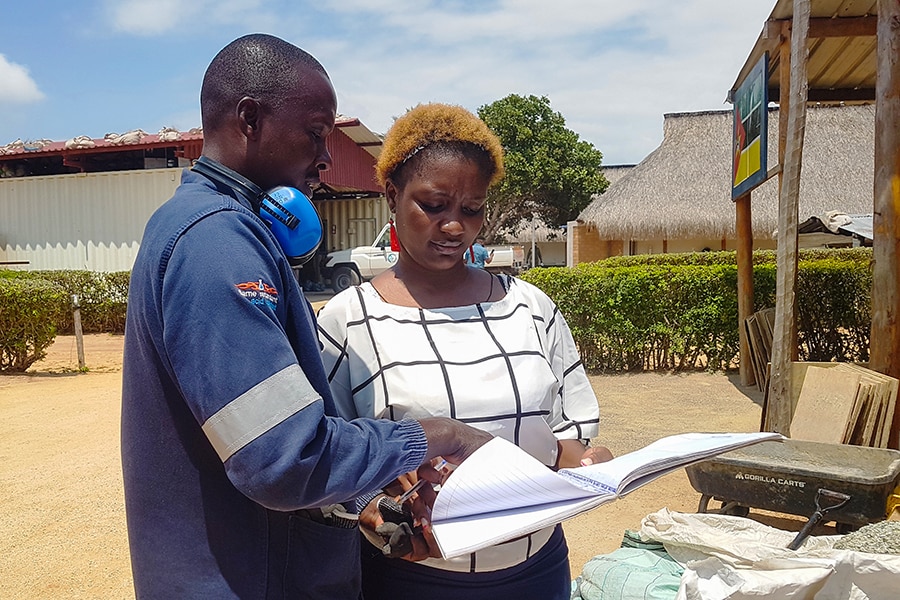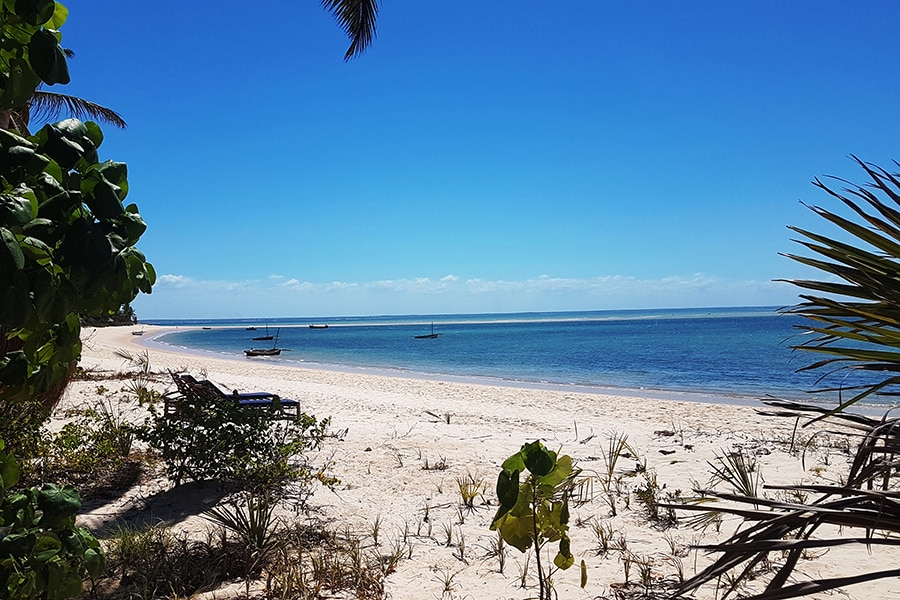
The Mozambicans paving the way for conservation and empowerment
Women spearhead the conservation and responsible tourism movement in the African country by using plastic and glass litter to make paver blocks in a marine national park
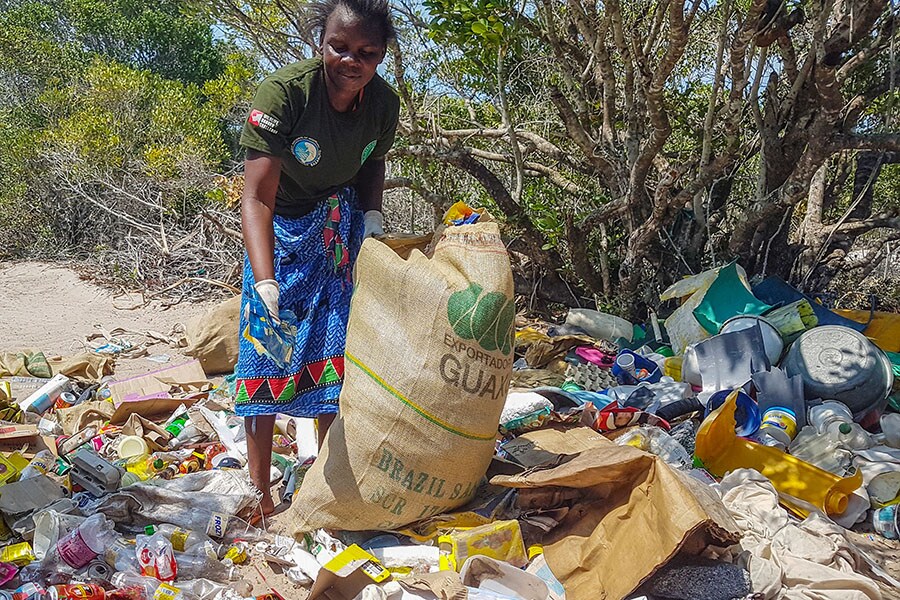 Thirty-three-year-old Fauzia Vilanculos is one of the waste collectors on the island of Benguerra in Mozambique. Image: Khursheed Dinshaw
Thirty-three-year-old Fauzia Vilanculos is one of the waste collectors on the island of Benguerra in Mozambique. Image: Khursheed Dinshaw
Behind a sand dune, in the shade of a tree, a woman is busy segregating litter. She has worn gloves and is putting a plastic potato chips wrapper into a big bag that is made from fibre. Thirty-three-year-old Fauzia Vilanculos is one of the waste collectors on the island of Benguerra in Mozambique. She has been segregating litter of plastic, glass, fabric, metal and paper. Marine litter tends to be plastic and fabric, often washed hundreds of kilometres from other continents.
Twenty-four-year-old Judite Huo is also a waste collector. She was previously working in a resort on the island but was laid off during the Covid-19 pandemic. She was not alone. A number of women lost their jobs during the pandemic. Unemployed, and with no means to support themselves, they were in a precarious situation. It was then that Bazaruto Archipelago National Park initiated a clean-up programme to help alleviate Covid-induced unemployment and poverty. This became formally established as Basisa Bazaruto.
Basisa Bazaruto, which means ‘clean Bazaruto’, was started to empower indigenous women as well as tackle the excessive trash problem on the inhabited islands of the Bazaruto Archipelago National Park. The park encompasses an archipelago that includes the five islands of Bazaruto, Benguerra, Santa Carolina, Magaruque and Banque. Three of these islands, namely Bazaruto, Benguerra and Magaruque, are inhabited by about 6,850 people, according to the 2022 survey.
Basisa employs 63 Mozambicans, 53 of whom are islanders. Working for 8 hours, there are 50 collectors on the islands. Of these 46 are women who had never worked full-time before or were fisherwomen or had lost their jobs during the pandemic. The dual goals of women empowerment and providing an alternative source of income for the women on the islands are being achieved under the initiative.
The women gather trash that is washed ashore from other countries, from shops and from local people. Each collector fills five bags and gets them to their respective waste segregation centre where the litter is segregated into paper, metal, fabric, glass and plastic.



